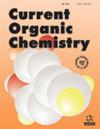Synthesis of Polysubstituted Pyridines via Nitrogen-doped Graphene Catalyzed One-Pot Multicomponent Reaction under Solvent-Free Conditions
IF 2.1
3区 化学
Q3 CHEMISTRY, ORGANIC
引用次数: 0
Abstract
: Polysubstituted pyridine derivatives were producedwith high to excellent yields in the presence of nitrogen-doped graphene (NDG) as a dual acid–based catalyst. NDG efficiently catalyzes the multicomponent reaction between arylaldehydes, diethyl-acetylene dicarboxylates, malononitrile, and ammonium acetate under solvent-free conditions at 80°C to afford the polysubstituted pyridines in short reaction times. The structures of the synthesized pyridines were established by Ft-IR, 1H, and 13C NMR spectroscopic analysis. The advantages of this method include the in-situ oxidation of prepared 1,4-dihydropyridines, one-pot procedure, solventless system, operational simplicity, and no column chromatography. Additionally, neither toxic solvents nor catalysts are needed, and the procedure can be very reliable among the reported methodologies. The yields and reaction times in the presence of four times recycled catalyst are in comparable to the fresh catalyst. background: Graphene quantum dots have attracted considerable attention of chemists because of their unique properties such as: stability, non-toxicity, good water solubility, biocompatibility. In continuation of our interest in using ionic liquids, water or solvent-free systems as green reaction media in organic reactions for the synthesis of important compounds , we wish to report here efficient synthesis of polysubstituted pyridine derivatives in high to excellent yields using Nitrogen-doped graphene as efficient catalyst.在无溶剂条件下通过掺氮石墨烯催化的一锅多组分反应合成多取代吡啶
:在氮掺杂石墨烯(NDG)作为双酸催化剂的作用下,制备出了高产率至优产率的多取代吡啶衍生物。在 80°C 无溶剂条件下,氮掺杂石墨烯可高效催化芳基醛、二乙基乙炔二羧酸盐、丙二腈和乙酸铵之间的多组分反应,从而在较短的反应时间内得到多取代吡啶。通过傅立叶变换红外光谱、1H 和 13C NMR 光谱分析,确定了合成吡啶的结构。该方法的优点包括:对制备的 1,4-二氢吡啶进行原位氧化、一锅反应、无溶剂体系、操作简单、无需柱层析。此外,该方法既不需要有毒溶剂,也不需要催化剂,在已报道的方法中非常可靠。在使用四次回收催化剂的情况下,产率和反应时间与新鲜催化剂相当:石墨烯量子点因其独特的性质(如稳定性、无毒性、良好的水溶性和生物相容性)而备受化学家的关注。为了延续我们在有机反应中使用离子液体、水或无溶剂体系作为绿色反应介质合成重要化合物的兴趣,我们希望在此报告使用氮掺杂石墨烯作为高效催化剂高效合成多取代吡啶衍生物的高产率至优产率。
本文章由计算机程序翻译,如有差异,请以英文原文为准。
求助全文
约1分钟内获得全文
求助全文
来源期刊

Current Organic Chemistry
化学-有机化学
CiteScore
3.70
自引率
7.70%
发文量
76
审稿时长
1 months
期刊介绍:
Current Organic Chemistry aims to provide in-depth/mini reviews on the current progress in various fields related to organic chemistry including bioorganic chemistry, organo-metallic chemistry, asymmetric synthesis, heterocyclic chemistry, natural product chemistry, catalytic and green chemistry, suitable aspects of medicinal chemistry and polymer chemistry, as well as analytical methods in organic chemistry. The frontier reviews provide the current state of knowledge in these fields and are written by chosen experts who are internationally known for their eminent research contributions. The Journal also accepts high quality research papers focusing on hot topics, highlights and letters besides thematic issues in these fields. Current Organic Chemistry should prove to be of great interest to organic chemists in academia and industry, who wish to keep abreast with recent developments in key fields of organic chemistry.
 求助内容:
求助内容: 应助结果提醒方式:
应助结果提醒方式:


